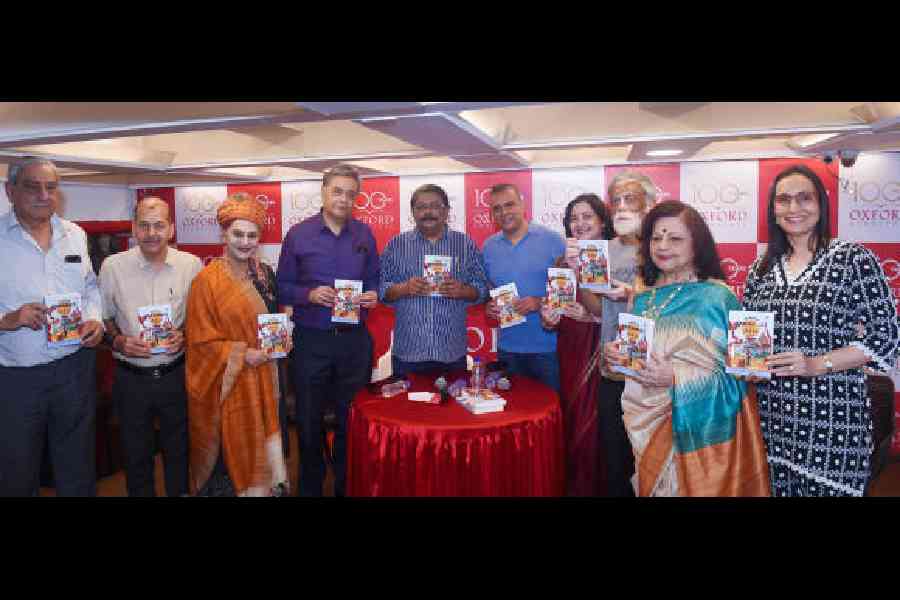Raja Venkateswara, a chemical engineer who has had an illustrious career in the industry, has penned down nuggets of his life in a title that intrigues the reader to pick up and explore with him the streets of Varanasi and Calcutta. With Around Varanasi in Assi Days, Venkateswara brings simple yet relatable tales from his hotel, Graffiti Gang, and his sojourn in the two cities and packs it with pleasant humour.
Discussing the book and unfurling its flavours at Oxford Bookstore were a bunch of people including Gautam Basu, professor at Ashoka University; Prof Shakti Ghosal; Reetasri Ghosh, leadership development and educational coach. Moderating the session adroitly was filmmaker Ashoke Viswanathan. Pointing out the lyrical quality of the language used by Venkateswara along with a rich vocabulary, Viswanathan began by asking the author if he made any modification to the book given that it was written 30 years ago.
Talking about the "detour" and penning down his first fiction, which in a lot of ways is biographical, Venkateswara, who has worked at Wall Street and has segued from being an engineer and tech strategist to an author now, said, “I never felt it’s a book worth publishing. I have retained 80 per cent of what I wrote 25 years ago. Rupa (Publications) and its editors helped me in the book to get the write form. Sometimes you have to wait for the right time and I think the right time for the tales to become public is now."
Panelist Reetasri joined in and shared her impressions of the book, “There are two things about the book that stood out for me. First is the title. I find it very clever. Again, his profile and style of writing about himself had me wanting to read the book. The style is easy-flowing, I learnt so much from the IIT lingo. The way he fleshes out the characters is fascinating. There’s humour, ethics, nostalgia… he weaves so many things about life. It took me back to my JNU days.”
How biographical is the book? Rightly pointing out, Venkateswara said, “I firmly believe that most authors and books have elements of biography. Around Varanasi in Assi Days is about 50 per cent autobiographical. Some characters are real. However, I am not bold enough to write a complete autobiography.”
Like a true connoisseur, Ghoshal talked about the notes of the book that impressed him at different levels. “There is a lot of local flavour mixed adroitly that attract the readers. There’s layered creativity. The top note is sharp, mid-note speaks from the heart and the bottom note lingers,” he described, adding, “Bangla, Hindi and Tamil phrases used in the book brought in a lot of freshness.”
Nostalgia ran high as it took the panelists back to their college days. Basu described the book not as a novel but a short story of growing up. “There is no science in scientific temperament. I don’t see him as a scientist but as a creative person. I can rename the book as Graffiti,” said Basu about the book that starts with Calcutta and ends in the city that has been the author's home.
The discussion took a serious and interesting turn when Basu picked up the topic of ragging in the book. While the author viewed some aspects of it in a positive light, Basu reminded him how what prepared him for the real world was his father and his Graffiti Gang. Along with the mild debate on ragging, the evening also saw discussions on the drawbacks of the school system in India and how it doesn’t prepare for what lies beyond.











